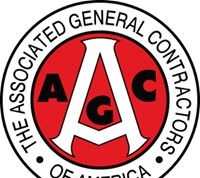During National Infrastructure Week, Norton Will Introduce Bill to Make D.C., Like Coastal States and U.S. Territories, Eligible for Federal Flood Funding
WASHINGTON, D.C. – (RealEstateRama) — Next week, during National Infrastructure Week (May 15-19), Congresswoman Eleanor Holmes Norton (D-DC), a senior member of the House Transportation and Infrastructure Committee, will introduce a bill to make the District of Columbia eligible for federal flood mitigation and prevention funding in light of concern about the increased threat of flooding in D.C. neighborhoods, downtown, and the National Mall. Norton’s bill would amend the Coastal Zone Management Act of 1972 (CMZA) to include D.C. in the definition of a coastal state.

Her bill would also give the District oversight for federally issued permits/facilities/actions that affect the coastal waters of the District. Norton said she believes the District’s omission from the CMZA was an unintentional oversight, as the CMZA was passed in 1972—before the District achieved home rule—and the territories were included in the CMZA. Last year, Norton gave remarks at the 2016 “DC Flood Summit” and later cohosted a congressional briefing on flood risks in D.C. and the national capital region.
“The District of Columbia, situated on two rivers, has substantial coastal flood risks and is under threat from rising sea levels,” Norton said. “The District clearly should be eligible for critical federal flood mitigation and prevention funding, and D.C.’s original omission from coastal zone management legislation appears to be an unintentional oversight. In 2006, D.C. experienced major flooding in several areas of the National Mall and Federal Triangle, which affected federal agencies in downtown D.C., including the National Archives, portions of the Smithsonian Institution, and the Internal Revenue Service building, impacting operations within those buildings for a prolonged period. Given the potential financial damage not only to local D.C. neighborhoods, but also to federal buildings and facilities, Congress should take immediate action that would allow D.C. to prepare for the floods of the future.”





